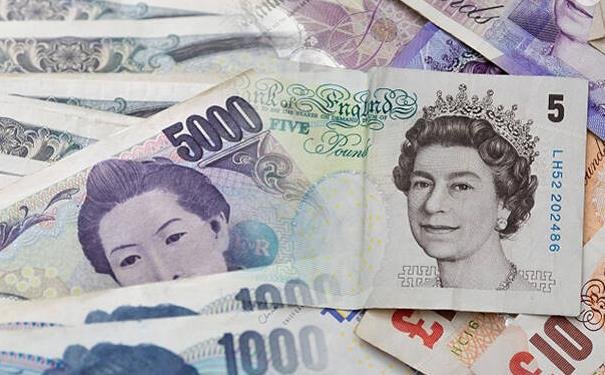The British pound has ended the week on a lower note against the Japanese yen, as the Bank of England (BoE) and the Bank of Japan (BoJ) both kept their monetary policies unchanged. The GBP/JPY pair dropped from a high of 183.12 on Monday to a low of 181.96 on Friday, losing 0.63% for the week.
The BoE announced on Thursday that it would maintain its benchmark interest rate at 0.1% and its quantitative easing (QE) programme at £895 billion, as widely expected by the market. The central bank also revised down its growth forecast for 2023 from 5.75% to 5%, citing the impact of the Omicron variant of Covid-19 and supply chain disruptions.
However, the BoE also signalled that it could raise interest rates in 2024, as inflation is expected to peak at 5.4% in April and remain above the 2% target until late 2023. The central bank said that “some modest tightening” of monetary policy would be needed to bring inflation back to the target over the medium term.

The BoE’s decision was in line with the market expectations, but some analysts had hoped for a more hawkish stance from the central bank, given the high inflation pressures in the UK. The British pound initially rose after the announcement, but soon gave up its gains as the market digested the details of the statement.
BoJ Keeps Policy Steady, Downgrades Growth Outlook
The BoJ also kept its monetary policy unchanged on Friday, as it maintained its short-term interest rate at -0.1% and its target for the 10-year government bond yield at around 0%. The central bank also continued its asset purchases and lending programmes to support the economy amid the pandemic.
The BoJ also downgraded its growth outlook for the current fiscal year, which ends in March 2024, from 2.9% to 2.6%, citing the impact of the Omicron variant and supply chain bottlenecks. However, the central bank raised its growth forecast for the next fiscal year from 1.6% to 1.8%, expecting a gradual recovery in domestic and external demand.
The BoJ’s decision was widely anticipated by the market, as the central bank has limited room to ease further without causing more harm than good to the economy. The Japanese yen showed little reaction to the announcement, as it was more influenced by the global risk sentiment and the movements of other major currencies.
GBP/JPY Outlook: More Volatility Ahead
The GBP/JPY pair is likely to face more volatility in the coming weeks, as both currencies are sensitive to the developments of the pandemic and the economic data. The pair could also be affected by the political uncertainties in both countries, as Prime Minister Boris Johnson faces a leadership challenge in the UK and Prime Minister Fumio Kishida prepares for a general election in Japan.
The pair could find some support at the 180 level, which has acted as a strong psychological barrier in the past. A break below this level could open the door for further losses towards the 175 level, which was last seen in July 2023.
On the upside, the pair could face some resistance at the 185 level, which has been a key hurdle since August 2023. A break above this level could signal a bullish reversal and pave the way for a rally towards the 190 level, which was last seen in February 2023.
